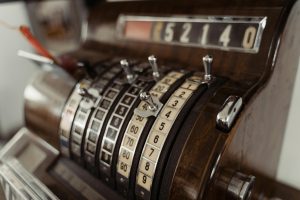The Essential Checklist for Buying a Used Vehicle
Welcome to the world of used cars, where smart buyers can find great deals on reliable vehicles. Buying a used vehicle can be a smart move, but it’s important to do your due diligence to ensure you’re not ending up with a lemon. In this article, we’ll provide you with an essential checklist for buying a used vehicle so you can make an informed decision and drive away with peace of mind.
Do Your Research
Before you even begin your search for a used vehicle, it’s crucial to do your research. This will not only help you narrow down your options but also give you an idea of what to expect in terms of price and quality. Start by determining what type of vehicle you’re interested in and what your budget is. It’s also a good idea to research the average price of the specific make and model you’re interested in, so you know what a fair price is.
Check the Vehicle History Report
The first thing you should do when considering a specific used vehicle is to run a vehicle history report. This report will give you important information about the car’s past, including any accidents or major repairs. You will also be able to see how many previous owners the car has had and whether it has a clean title. This report is essential in helping you make an informed decision and avoid any potential problems down the road.
Inspect the Exterior and Interior
When you’re ready to take a closer look at a used vehicle, the first thing you should do is a visual inspection of both the exterior and interior. Look for any rust, dents, or scratches on the exterior, and make sure all the lights and windows are in working order. On the inside, check the seats, carpets, and overall condition of the vehicle. You should also pay attention to any strange smells, as this could indicate underlying issues.
Test Drive the Vehicle
A test drive is a crucial step in the used car buying process. This will allow you to get a feel for the car and see how it performs on the road. Pay attention to how the vehicle accelerates, brakes, and turns. You should also check the steering and suspension to ensure they are in good working condition. If you’re not comfortable with the way the car drives, it’s best to keep looking for a different option.
Have a Mechanic Inspect the Vehicle
While you may have a good eye for looking over a vehicle, it’s always recommended to have a mechanic inspect it before making a purchase. A mechanic will be able to spot any potential issues that may not be visible to the untrained eye. They can also give you an idea of how much you will need to spend on repairs and maintenance in the future.
Negotiate the Price
Once you’ve found a used vehicle that you’re interested in and know that it’s in good condition, it’s time to negotiate the price. Be prepared to walk away if the seller is not willing to lower the price to what you believe is fair. Remember, there are plenty of other used cars out there, and you want to make sure you’re getting a good deal.
Get It in Writing
Before finalizing the deal, it’s important to get everything in writing. This includes the agreed-upon price, any warranties or guarantees, and any other terms or conditions. Make sure to read over the contract carefully and ask questions if anything is unclear. Having a written agreement will protect you in case any issues arise in the future.
Conclusion
Buying a used vehicle can be a cost-effective and practical choice, as long as you do your due diligence. By following this essential checklist, you can ensure that you’re making an informed decision and not ending up with a lemon. Remember to research, inspect, test drive, and negotiate before finalizing the deal, and always have a mechanic check the vehicle before purchasing. With these tips, you can drive away with confidence in your new-to-you used vehicle.










